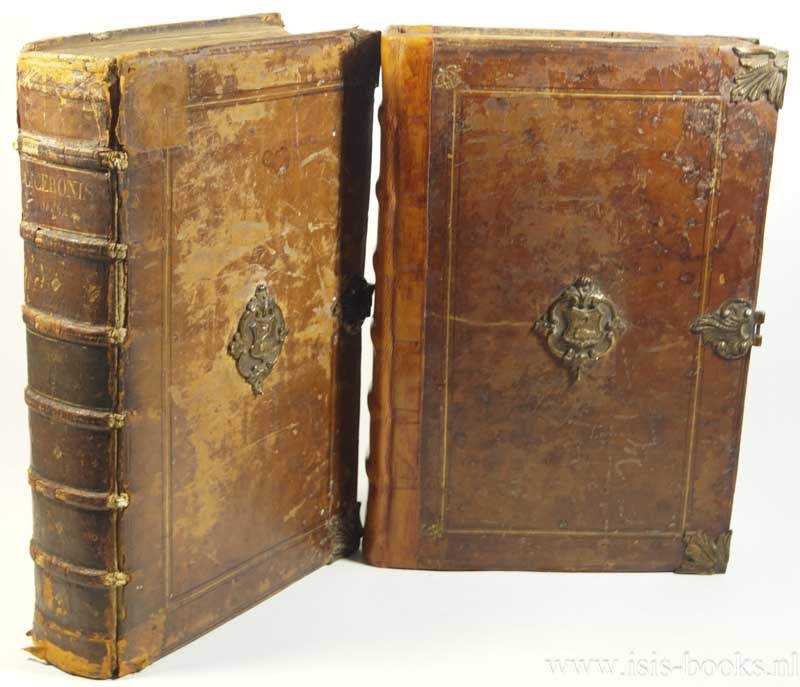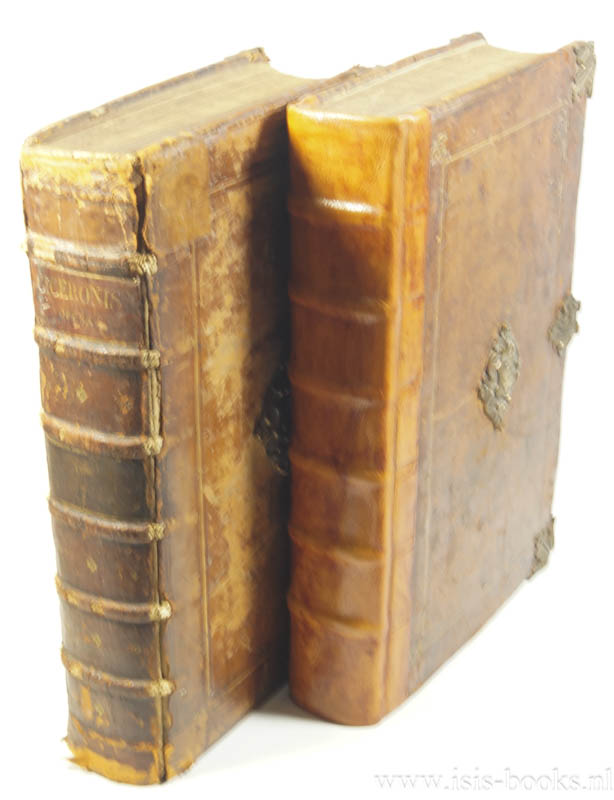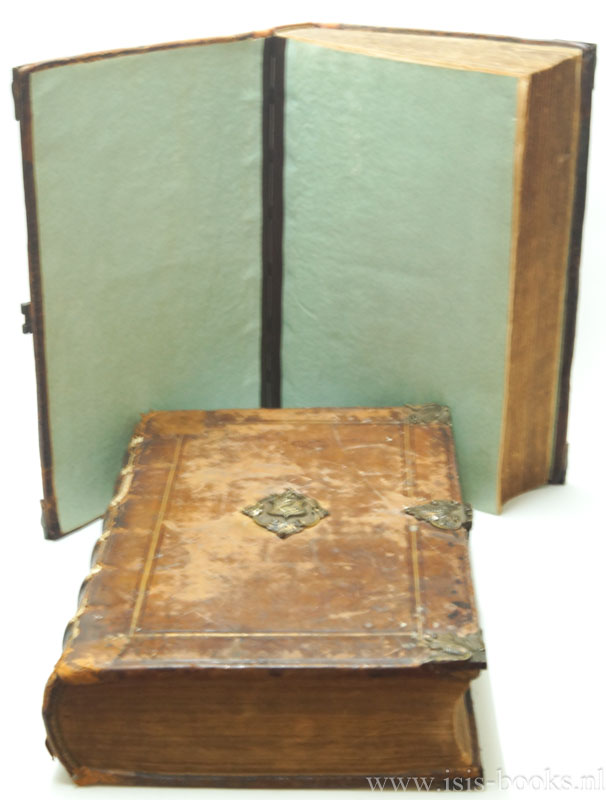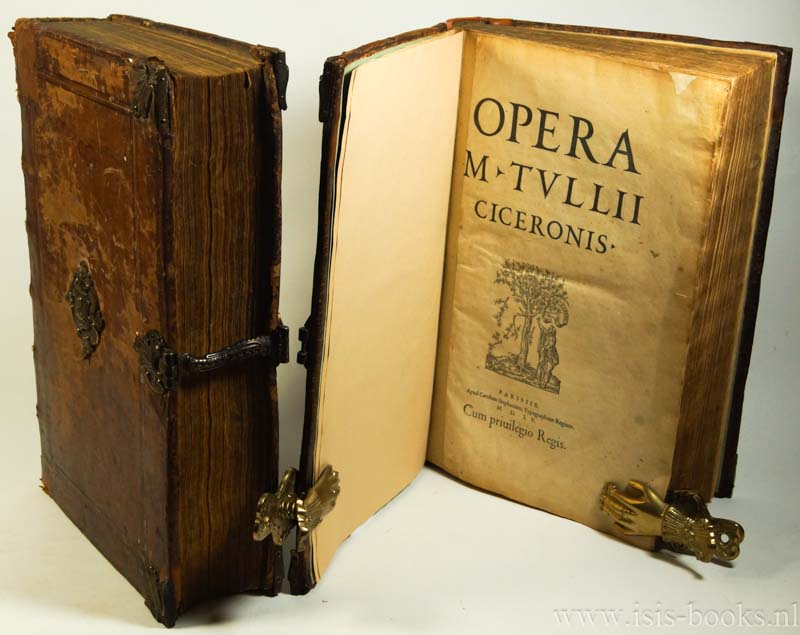OK
OK Cancel


CICERO, MARCUS TULLIUS
Opera M. Tullii Ciceronis. 4 parts in 2 volumes. Complete.
Lutetia / Paris, Carolus Stephanus, 1554-1555.
5 printer's marks. Halfleather. Gr. 8°. Book clasps, metal corner and center pieces. (XXIII) 172, 1- 762 (II), 1- 572 (II) pp. *volume 1 partly rebound and restored, clasp partly missing, small worm hole in the margin of the second half of the volume, some pages restored with tape in the margins, a few small tears and some other minor damages in the paper. Volume 2: spine and edges boards slightly damaged, some annotations in pen in the margins of pp. 389-392, a few tears and some other minor damages in the paper, otherwise both volumes in good condition*
Tomus primus (...) in quo haec continentur: Rhetoricum ad C. Herennium libri IIII. De inventione rhetorica lib. II. De oratore ad Q. fratrem lib. III. De claris oratoribus lib. I, qui Brutus inscriptus est. Orator ad Brutum. De optimo genere oratorum, initium tantum. Topica ad C. Trebatium iurisconsultum. De partitione oratoria dialogus. Tomus secundus (...) omnes eius orationes complectens. Tomus tertius (...) omnes eius epistolas complectens. Tomus quartus (...) philosophicos eius libros complectens.
Carolus Stephanus (Charles Estienne), Paris, 1504 - Paris, 1564), was the younger brother of Robert Estienne. Charles took over the printing house in Paris after Robert fled to Geneva following the censorship measures against his Bible editions by the Sorbonne. Charles has been called the 'enfant terrible de la famille Estienne' (Bénédicte Boudou) as well as 'the most versatile member of the French humanist dynasty of printers' (Hélène Cazes). He was an important anatomist (he was the first to describe the canal in the spinal cord), travel writer, lexicographer, editor of classical works both in Latin and Greek, and an innovative publisher of short multilingual compilations for young students. Charles held the title of royal typographer, but he lost the privilege for Greek typography and had to hand over the renowned Greek type produced by Garamond to Adrianus Turnebus. Charles was slow to let go of the Greek type, which years later led to the false accusation by king Louis XIII that Robert stole the king's Greeks and smuggled them to Geneva. Due to mounting debts, a common consequence of the 'privilege' of being royal typographer, Charles was sent to the Châtelet prison in 1561, where he died in 1564. This edition of Cicero closely follows the 1543-1544 edition by his brother Robert and is enriched with very detailed indices, lists of variants and errata and contains passages in Greek.
Bénédicte Boudoud, 'Charles Estienne, un médecin pédagogue ou un courtisan masqué ?', Christine Bénévent et al. ed., Passeurs de textes: Imprimeurs et libraires à l?âge de l?humanisme, p. 185-198
Hélène Cazes, 'Translation as editorial mediation: Charles Estienne's experiments with the dissemination of knowledge', Renaissance Studies 29:1 (2015) 19-35.
Boeknummer 645062 € 3000.00








